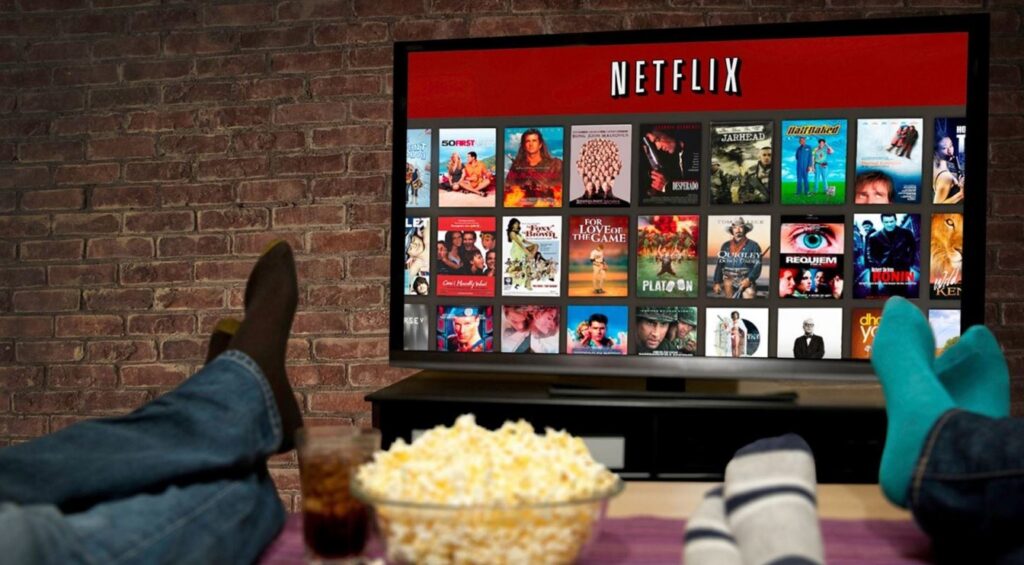One of the hallmarks of a mature human being is being able to admit when you were wrong, especially about Netflix. While I cannot lay claim to being the best human being or the most mature, I can ‘fess up and say I made a huge mistake back in 2011.
You see, that was when Netflix decided to separate its streaming services from DVD rentals, and charge two different subscription prices. I thought this was a suicide pill for Netflix. A decade ago, household broadband was still not up to the levels we enjoy today, and people still had DVD players. Our computers all had optical drives, so why would they do this?
Netflix in 2011 to 2021: I Can See Clearly Now
As it turns out, Reed Hastings, the CEO of Netflix, is a bit of a visionary. OK, not a bit. A whole heck of a lot. In 2007, he caught a glimpse of the future and launched the streaming side of Netflix. Tangible products, in his mind, would become quaint and passe–which they did–and his emphasis on the future of streaming digital content was spot on.
Now surely he could not have seen a pandemic coming in 2020. Or could he? Last year was the goose that laid the golden egg for Netflix, as they surpassed 200 million subscribers, at a time when people were hunkering down and going nowhere. Yes, there are scads and scads of other streaming services available (full disclosure: I have seven), but Netflix is far and away the elephant in this crowded living room.

Whether Mr Hastings saw a global crisis coming or not, it was the perfect storm for attracting and retaining viewers. I know I binged more last year than the previous five put together. Netflix was in the right place at the right time.
Netflix Subscription: Model This
The interesting part about Netflix, of course, is their business model. They collect no user demographics. All they know about my account is that each family member has a separate profile, along with viewing and searching history. That’s it.
There is no advertising revenue to be made, only that recurring monthly subscription. It thus behooves Netflix to keep suggesting shows and movies I might like, all based on what I have watched before. It knows which ones I have started and completed, along with those I abandoned. From this it can begin to deduce my preferences.
But Wait, There’s More
Historically, Netflix had to rely on content it licensed from the production studios, which, based on how things are done in the States, means that DVD rentals often come long before streaming. Furthermore, even streaming agreements are not in perpetuity, and shows come and go each month.
Oh, but it became available in the UK last July. How do you solve this? Use a VPN like we did. We pointed toward London and were able to login and binge S3. Connect your laptop to the TV via an HDMI cable, and voila! Problem solved. In other instances, like AMC’s Better Call Saul, US distribution on Netflix does not begin until at least a year after the air dates, yet shows up in the UK the very next day. Apparently the studios are more concerned about milking profits from Americans than the rest of the world.
Content Is King
This pushed Netflix into becoming a content producer of movies, series, and documentaries. It has its own studios in Atlanta, Albuquerque, and Toronto, in states and provinces with lucrative incentive deals offered to the film industry. Slowly but surely, as the number of other streaming competitors has increased and made it more difficult for Netflix to secure and retain licensing arrangements for popular content, it has had to create its own.
And it has done so with great success. How many of you have watched Ozark, Outer Banks, The Queen’s Gambit, and Stranger Things? There ya go.
So even though Netflix announced a price increase last fall, no one seems to be worried. Netflix (NFLX) stock has been in the stratosphere near $580 a share. Not bad for a company that sells nothing other than subscriptions.
As long as Netflix can keep the excellent content coming–which they must, whether it is original or licensed–they will continue to ride this wave. They have continued to change the way we consume media, as well as the way shows are packaged and released. No longer does a series have to have 22 episode like on network TV. No longer is anyone beholden to a traditional September new season release date.
Basically, Netflix rewrote the rules, and we are all too happy to play by them.
Now I just need to find something else to binge. Suggestions, anyone? I mean, before Netflix starts lobbing ideas my way. Sure, I’ve got my other streaming options, but Netflix continues to dominate my viewing time. I’ve been wrong before, but I’m doubling down on Netflix right now.
Dr. Nicholas Gerlich
Hickman Professor of Marketing


